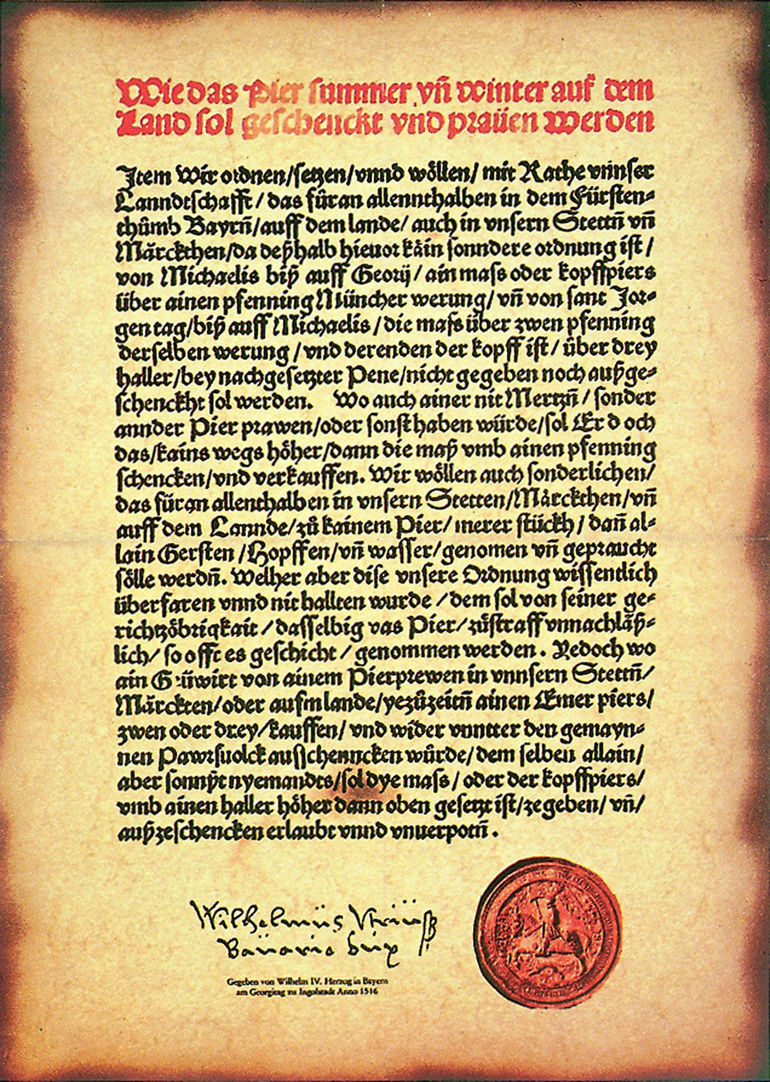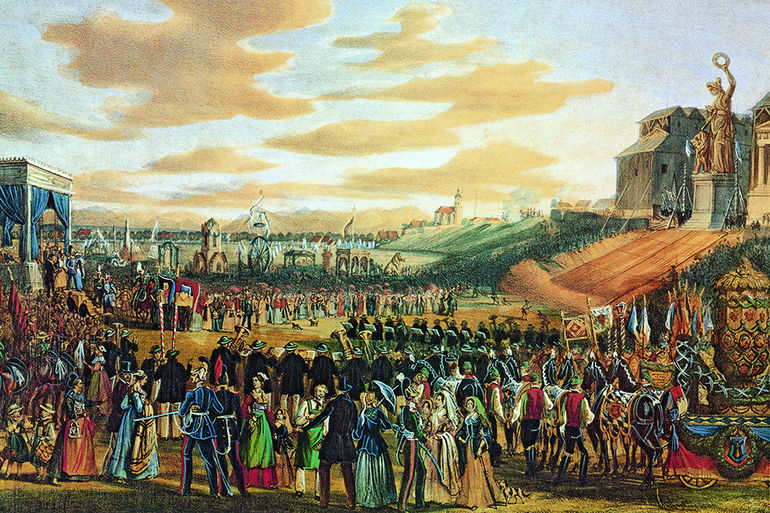Bavaria brewing culture
The history of beer in Bavaria goes back to the 12thcentury with the discovery, by the Abbess Hildegarde of Binden, of the antiseptic and conservative virtues, as well as the bitterness, of hops. It is in the 13th century that we find the first monastery breweries, and the first royal brewery tradition of the House of Wittelsbach in 1260, which is still represented today by Prince Leopold of Bavaria. Before then, the region was renowned for its wine.
A whole series of artisanal breweries had been established staring in the 14th century, but it was on 23 April 1516 that the history of Bavarian beer truly began, with the introduction by Duke Friedrich Wilhelm IVof Prussia of the "Bayerische Reinheitsgebot" which celebrated its 500th anniversary in 2016!
The “Bayerische Reinheitsgebote”oversees the quality of local beers and the brewing process of real Bavarian beer. According to this "law", beer should have just three ingredients: water, malt and hops. This is for the benefit of the population. The Reinheitsgebot establishes that no other ingredient that could be harmful for the health of the consumer can be added to the beer.
In 1520, wheat beer (Weissbier / Weizenbier) was brought to Bavaria from Bohemia, by adding yeast and wheat to the brewed base, although this was a breach of the Reinheitsgebot. A brewer was authorized to brew Weissbier until 1567 when it was forbidden to make "white" (wheat) beer to keep the stocks of wheat for the bakers. This restriction was abolished in 1602 when the first tax on beer was enacted.
During the 17thcentury a new type of beer became popular in the region, the Backbiter, sometimes called the Starchier or Ator, which at the time was brewed by the Bavarian monks. However, until 1780 drinking this beer was prohibited to anyone who was not affiliated with the monastery.
 Official text from Bayerische Reinheitsgebot - Duc Guillaume IV - 1516
Official text from Bayerische Reinheitsgebot - Duc Guillaume IV - 1516
On 17 October 1810, the first Oktoberfest was organised to celebrate the marriage of King Ludwig I of Bavaria of the House of Wittelsbach with Therese of Sax-Hildburghausen. The festival took place at the gates of the city of Munich, where it is still held to this day. A large horse race was also organized during the festival. In his first year of reign, King Ludwig I issued the Biergarten authorization, which is still very popular in Bavaria.
Since then, Bavarian beer has evolved little from the Reinheitsgebot, which is still in force today. However, new microbreweries, such as Crew Republic based in Munich, have modernised the style by working with American hops, which lend highly varied aromas to the beer that differ sharply from those typical of Bavarian beer
Delivery by the Swiss post or Drive-In (Pick up orders directly at the shops in St-Légier or Aigle)


Secure online payment




We answer to all your questions by phone on 021 943 51 81 or by mail at info@amstein.ch concerning order, delivery or product problems.
For questions relating to the website (connection issues, bad display, ...), please write us at eshop@amstein.ch.











